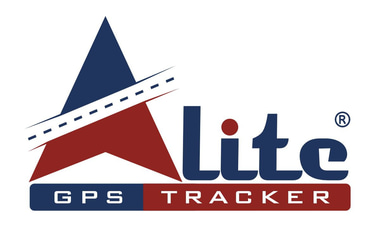Revolutionize Your Tracking Experience – Real Time, Reliable & Effortless tracking solutions
+91 - 7665666631 (Toll Free)
Why Modern Fleets Can't Operate Without a GPS Tracking System
In today's fast-paced logistics world, modern fleets rely on GPS tracking systems for efficient operations. This blog explores why GPS technology is essential for route optimization, real-time monitoring, fuel management, and improving driver safety—ensuring better control and higher profitability for fleet owners.
Chandra Singh
3/25/20253 min read


In today’s fast-paced, technology-driven world, efficient fleet management is no longer optional—it’s a necessity. Companies managing fleets of vehicles, whether for logistics, public transportation, or service delivery, face increasing pressure to optimize operations, reduce costs, and improve customer satisfaction. At the heart of this transformation lies GPS tracking systems. These advanced systems provide real-time vehicle location data, comprehensive analytics, and improved operational control, making them indispensable for modern fleet operations.
1. Enhanced Real-Time Tracking and Visibility
One of the primary advantages of a GPS tracking system is real-time visibility. With GPS technology, fleet managers can monitor the exact location of every vehicle in the fleet, ensuring constant oversight. This level of transparency helps in:
Improved Dispatch Efficiency: Real-time tracking allows dispatchers to allocate vehicles more effectively, reducing downtime and improving service delivery times.
Quick Incident Response: In case of an accident or breakdown, GPS tracking helps identify the vehicle's location immediately, allowing for faster assistance.
Reduced Unauthorized Usage: Managers can detect and prevent the misuse of vehicles by tracking vehicle routes and stopping unauthorized trips.
2. Optimized Route Planning and Fuel Efficiency
Fuel consumption is one of the largest expenses in fleet management. GPS tracking systems provide detailed insights into driving patterns and route optimization, leading to better fuel management.
Route Optimization: Advanced GPS systems analyze traffic conditions and suggest the most efficient routes, reducing fuel consumption and delivery times.
Idle Time Reduction: Monitor and minimize engine idling, which saves fuel and reduces wear and tear on vehicles.
Lower Operational Costs: Efficient route planning directly translates to reduced mileage and fuel costs.
3. Improved Driver Behavior and Safety
Driver accountability is crucial in maintaining fleet efficiency and safety. GPS tracking systems monitor driver behavior, helping to enforce safety protocols and reduce risky driving practices.
Driving Analytics: Monitor speeding, harsh braking, rapid acceleration, and other unsafe behaviors.
Driver Scorecards: Provide drivers with performance feedback to encourage safer and more responsible driving.
Incident Prevention: Real-time alerts allow intervention before small issues escalate into serious incidents.
4. Regulatory Compliance and Reporting
Compliance with government regulations is a major concern for fleet operators. GPS tracking systems simplify adherence to these rules by automating reporting and ensuring accurate record-keeping.
Hours of Service (HOS) Compliance: Automated tracking of driving hours helps maintain compliance with legal requirements and avoid penalties.
Accurate Mileage Reporting: GPS trackers provide precise mileage logs for tax reporting and audits.
Geofencing Compliance: Set virtual boundaries to ensure vehicles stay within designated areas.
5. Enhanced Security and Theft Prevention
Vehicle theft can lead to significant financial loss. GPS tracking systems act as a powerful deterrent and a recovery tool.
Real-Time Alerts: Receive immediate alerts if a vehicle is moved outside specified areas.
Remote Immobilization: Some GPS trackers allow fleet managers to remotely disable a vehicle if theft is detected.
Location Tracking: In case of theft, GPS tracking aids law enforcement in recovering stolen assets.
6. Customer Satisfaction and Service Quality
Customer expectations for quick, transparent, and reliable service have never been higher. GPS tracking systems help fleet operators exceed these expectations.
Accurate ETAs: Provide customers with real-time updates and accurate delivery timelines.
Improved Communication: Offer better communication and transparency through automated notifications.
Service Reliability: Ensure timely deliveries and reduce service disruptions with real-time tracking.
7. Data-Driven Decision Making
The data generated by GPS tracking systems is invaluable for making informed business decisions.
Operational Insights: Access data on vehicle utilization, fuel consumption, and driver behavior.
Performance Analysis: Identify areas for improvement through comprehensive reporting.
Cost Optimization: Use analytics to reduce unnecessary expenses and improve profitability.
Conclusion
In the modern age of fleet management, operating without a GPS tracking system is no longer practical. The benefits of enhanced visibility, optimized routes, improved driver behavior, regulatory compliance, and increased security are too substantial to ignore. By investing in a robust GPS tracking system like Alite GPS, fleet operators can streamline operations, reduce costs, and deliver exceptional service to their customers.
Embrace the future of fleet management—equip your vehicles with Alite GPS Trackers and drive your business towards efficiency and success.
Empowering Your Journey with Smart Tracking!
Fleet or Personal, We Track It All – Get in Touch
support@alitegps.com
Srag India Info Solutions © 2025. All rights reserved.
Info@alitegps.com
